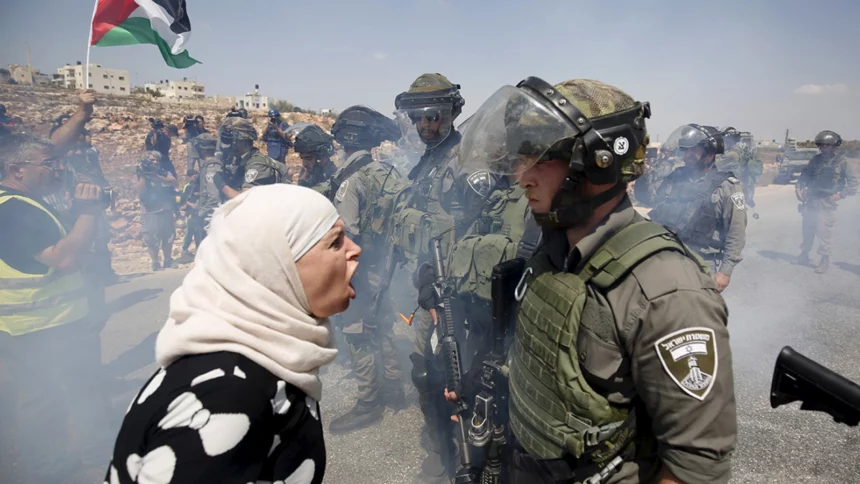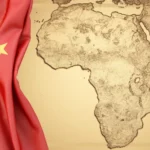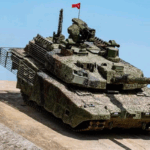Summary by Geopolist | Istanbul Center for Geopolitics
The paper examines the complex and turbulent dynamics of Israel’s ties with its neighbours, particularly in light of the larger Israeli-Palestinian conflict and the role played by Western powers in escalating the situation. According to the article, Western governments—especially those of the United States and the European Union—are largely to blame for the current state of affairs in the area because they have not done enough to press Israel to pursue peace, stop the growth of settlements, or listen to Palestinian concerns. Their steadfast backing of Israel, particularly in the name of self-defense, has contributed to the conflict’s escalation and thwarted peace efforts.
The Origins of the Conflict: Missed Opportunities and Western Complicity
The author begins by reflecting on important historical occurrences that have shaped Israel’s relations with its adversaries and the response of the West to those events. He draws attention to the 1994 Hebron massacre, in which Israeli extremist Baruch Goldstein killed 29 Palestinian worshippers. In order to resolve territorial disputes and establish a framework for Palestinian self-governance, the Oslo Peace Process was initiated in order to negotiate peace between Israel and the Palestinians. However, the tragedy revealed deep rifts in Israeli society and hampered the peace effort, especially when combined with opposition from Israeli hardliners and radicals in the political sphere.
According to the author, the Oslo Accords and the concept of a Palestinian state were strongly opposed by right-wing Israeli politicians, such as Benjamin Netanyahu, who would go on to become prime minister. A significant turning point was the 1995 killing of Prime Minister Yitzhak Rabin by a Jewish extremist, following Rabin’s efforts to advance the peace process. Hopes for a peaceful solution were severely lowered with the rise of leaders like Netanyahu and Ariel Sharon, who were adamantly opposed to making territorial concessions to the Palestinians. Much of the progress made during the Oslo Accords was weakened by the Second Intifada, a bloody rebellion that began in 2000 as a result of Sharon’s contentious visit to the Temple Mount.
Hamas’s rise and the undermining of the Palestinian cause
According to the author, the story of the Israeli-Palestinian conflict was greatly impacted by the rise of Hamas during the Second Intifada. In contrast to the Palestinian Authority (PA), which has grown more corrupt and ineffectual since its creation through the Oslo process, Hamas has positioned itself as a legitimate opposition group for many Palestinians by using violent tactics like suicide bombings. Many Palestinians lost faith in the PA as a result of its failure to effectively advocate for Palestinian rights and its compromises with Israel.
However, Hamas’s tactics, which included striking civilians, contributed to the Palestinian cause’s diminished credibility in the eyes of the West. Hamas’s violence was increasingly seen by Western countries, particularly the US and EU, as justification for Israel’s military operations and broader security plans. Hamas’s growing ties to Iran and other members of the so-called “axis of resistance” in the Middle East, which further separated the organization from Western decision-makers, contributed to the shift in perspective.
Israel’s Self-Defense Narrative and the Expansion of Settlements
The main focus of the research is how Israel has used the idea of self-defense to defend its policies toward Palestinians in the West Bank and Gaza Strip, including Israeli activities against Hamas and Hezbollah in Lebanon. He points out that Israel has been able to act without accountability thanks to the Western acceptance of this self-defense narrative, particularly in its military operations in Gaza, which have claimed a significant number of civilian lives. Approximately 300 Israelis have been murdered in Israeli military operations in Gaza since 2008, while over 6,400 Palestinians, many of whom are civilians, have been killed, according to United Nations reports cited in the article.
The essay highlights how Israel’s military occupation of Gaza, including its borders and air and sea space, has effectively turned the Gaza Strip into what the author calls a “open-air prison.” With little international opposition, particularly from the United States and Europe, which continuously defend Israel’s right to self-defense while ignoring the broader ramifications of its policies, Israel has been able to continue its military operations under the pretext of security.
Similarly, the same self-defense justification is used to justify Israel’s 2006 invasion of Lebanon, which was meant to destroy Hezbollah. Over 1,100 Lebanese citizens were killed in this battle, while many more were displaced. According to the author, these military operations are only a part of a bigger plan that also includes Israel’s continuous settlement growth in the West Bank and East Jerusalem, which are primarily considered to be occupied under international law. Israel has continued to increase its presence in these areas in spite of little opposition from Western countries, despite calls from the US and EU to stop building settlements.
The Role of Western Powers: The U.S., Europe, and the Pro-Israel Lobby
Alcaro is adamantly critical of Western nations for their complicity in Israel’s crimes, particularly the US and Europe. He contends that powerful pro-Israel lobbying in the United States has created a political environment in which no American politician can afford to seem to be anything other than fully pro-Israel. This aid consists of providing Israel with military backing, endorsing it diplomatically in international forums such as the UN, and promoting economic partnerships.
According to the report, despite the fact that many European countries support a two-state solution and openly denounce Israel’s settlement policies, they have done little to hold Israel responsible. Despite the fact that Israel’s tactics impede peace efforts and violate international law, Germany maintains its military and diplomatic support for Israel, having declared Israel’s security a “raison d’état.” Because of this steadfast support, Israel has been allowed to pursue its expansionist objectives unchecked.
The author draws attention to the contradictions in Western policy, specifically Israel’s continued commerce in cutting-edge technology with China and its failure to abide by Western sanctions against Russia following its invasion of Ukraine. Despite these divergences from Western priorities, Israel continues to enjoy substantial support, particularly from the United States, which shields it from serious international consequences.
The Gaza War and the Failure to Address Israeli Expansionism
When it comes to the most recent confrontation between Israel and Hamas, which began with the latter’s attack on Israel on October 7, 2023, Alcaro’s insight is particularly powerful. Over 1,200 Israelis lost their lives as a result of the fighting, while over 250 more were taken prisoner. Although the majority of people believed that Israel’s retaliatory attacks against Gaza were justified by the right to self-defense, the severity of Israel’s military response—which resulted in the deaths of over 40,000 Palestinians, including 16,500 children—has raised serious humanitarian concerns. Alcaro criticizes the Western response for failing to hold Israel accountable for the destruction of civilian facilities in Gaza or for failing to consider if Israel’s actions were proportionate.
The article looks at how Israel has continued to expand into Palestinian territory, particularly in East Jerusalem and the West Bank, using the war as justification. While the United States and Europe claim to support the creation of a Palestinian state, Alcaro notes that there is a glaring discrepancy between their rhetoric and reality given their inaction on Israel’s settlement expansion. A viable Palestinian state is essentially undermined by the continuous growth of settlements and the unrelenting appropriation of Palestinian land.
The Ethno-Supremacist Vision of Israel’s Far Right
The rise of far-right ideology in Israeli politics, particularly within the present administration led by Benjamin Netanyahu, is among the most alarming aspects of the research. The author describes the emergence of radical politicians like Itamar Ben-Gvir, who publicly praises the perpetrator of the 1994 Hebron massacre, and their present-day powerful positions in the Israeli government. The expulsion of Palestinians and the expansion of Israeli territory from the Jordan River to the Mediterranean Sea are advocated by these far-right leaders.
According to the author, the rise in ethno-supremacist beliefs has changed Israeli politics to the point where no major party supports talks with the Palestinians. The development of any peace process has been severely hampered by the change in Israeli domestic politics. The government’s tough stance has been further cemented by Netanyahu’s relationship with these extremists, which has allowed him to hold onto power despite facing many corruption accusations and legal challenges.
Western Inaction and the Road Ahead
The author concludes by discussing the broader repercussions of Western passivity toward Israeli expansionism and the deteriorating humanitarian situation in the West Bank and Gaza. He argues that the United States and Europe should take a more assertive stance, putting pressure on Israel through economic and diplomatic measures including halting military exports and imposing penalties on people and groups involved in settlement growth.
The author, however, questions if such actions will be taken. He contends that Western governments will continue to overlook the larger context of Israeli policies that uphold violence and obstruct any prospects for peace because they have fully adopted the narrative of Israel’s right to self-defense. The result is an incompetent policy in which the West remains engaged in the ongoing conflict because it is unwilling or unable to challenge Israel’s expansionist goals and wishes that its adversaries, such as Iran and Hezbollah, will exercise more restraint than Israel.
The article concludes with a scathing indictment of Western governments’ role in the Israeli-Palestinian conflict, arguing that their failure to hold Israel responsible has made the conflict worse, accelerated the radicalization of Israeli politics, and prolonged regional violence.
Read more below.







